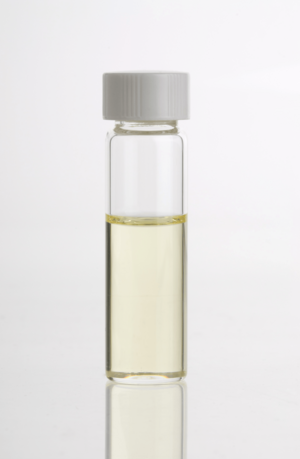Lavender oil facts for kids
Lavender oil is a special kind of essential oil. It's made from the flowers of certain lavender plants. There are over 400 types of lavender plants around the world!
Lavender oil isn't just one simple thing. It's a mix of many natural chemicals called phytochemicals. Two important ones are linalool and linalyl acetate.
Contents
How Lavender Oil is Made
Pure lavender oil is made using a process called steam distillation. This method helps get a lot of oil from the plants.
Harvesting Lavender
Farmers usually pick lavender flowers between late June and August. After picking, the flowers and stems are packed tightly into a special machine called a lavender still.
The Distillation Process
Inside the still, hot steam is gently blown through the lavender flowers. This heat breaks open tiny pockets in the flowers that hold the oil. The hot lavender oil turns into a vapor (like steam).
A cold water pipe runs through the middle of the still. When the hot oil vapor touches this cold pipe, it turns back into liquid oil. This liquid oil is then collected in a tank.
Separating Oil and Water
In the tank, the lavender oil and water naturally separate. This is because oil and water don't mix and have different weights. The water is then drained away, leaving behind the pure lavender essential oil.
Where it's Made
Lavender oil is made all over the world. The top countries that produce it are Bulgaria, France, and China.
What Lavender Oil is Used For
In the United States, lavender oil is considered safe for its common uses. People often use lavender oil for its pleasant smell, like in perfume. It's also used in aromatherapy, which is a way to use scents to help you relax.
Skin Application
Some people put lavender oil on their skin. It's often used in massage therapy to help people feel calm. However, it's important to know that some people can have allergic reactions to it.
For Relaxation
There have been studies looking at whether lavender oil can help with anxiety. One review of studies found that taking an 80 mg lavender oil capsule each day was linked to feeling less anxious. But, it's important to remember that these studies were paid for by the companies that make the lavender oil capsules. Also, many of them were done by the same researcher, and it wasn't always clear if the studies were "blinded" (meaning people didn't know if they were getting the oil or a fake pill). Because of these reasons, experts say we still need more research to be sure if oral lavender oil truly helps with anxiety.
Old Art Use
Long ago, oil from a type of lavender called spike lavender was used as a solvent in oil painting. It helped thin the paints before people started using turpentine.
Things to Be Careful About
It's very important to know that many essential oils, including lavender oil, can be harmful if swallowed.
If Swallowed
Even a small amount of diluted essential oil can be harmful to adults. For children, even smaller amounts can be dangerous. Between 2014 and 2018, there were many cases of lavender oil being swallowed by accident in New South Wales, Australia. Most of these cases involved children.
If someone swallows lavender oil, they might have symptoms like blurry vision, trouble breathing, a burning feeling in their throat, stomach pain, vomiting, or a rash.
On the Skin
Putting lavender oil directly on the skin can sometimes cause a skin rash or irritation called contact dermatitis.
Mixing with Medicines
Swallowing lavender oil might also affect how some prescription drugs work. This includes medicines for thinning blood, lowering cholesterol, or preventing seizures. Always talk to a doctor before using essential oils if you are taking any medicines.
Impact on the Environment
A study in 2018 found that some chemicals in lavender oil can act as "endocrine disruptors." This means they might affect the body's hormones. Scientists are looking into what this could mean for our health and the environment.
What's Inside Lavender Oil
Lavender oil is made up of more than 100 different natural chemicals. The main ones are linalool and linalyl acetate. These chemicals give lavender oil its special smell and properties. The exact mix of chemicals can be different depending on the type of lavender plant.
Images for kids
See also
 In Spanish: Aceite de espliego para niños
In Spanish: Aceite de espliego para niños
 | Kyle Baker |
 | Joseph Yoakum |
 | Laura Wheeler Waring |
 | Henry Ossawa Tanner |






